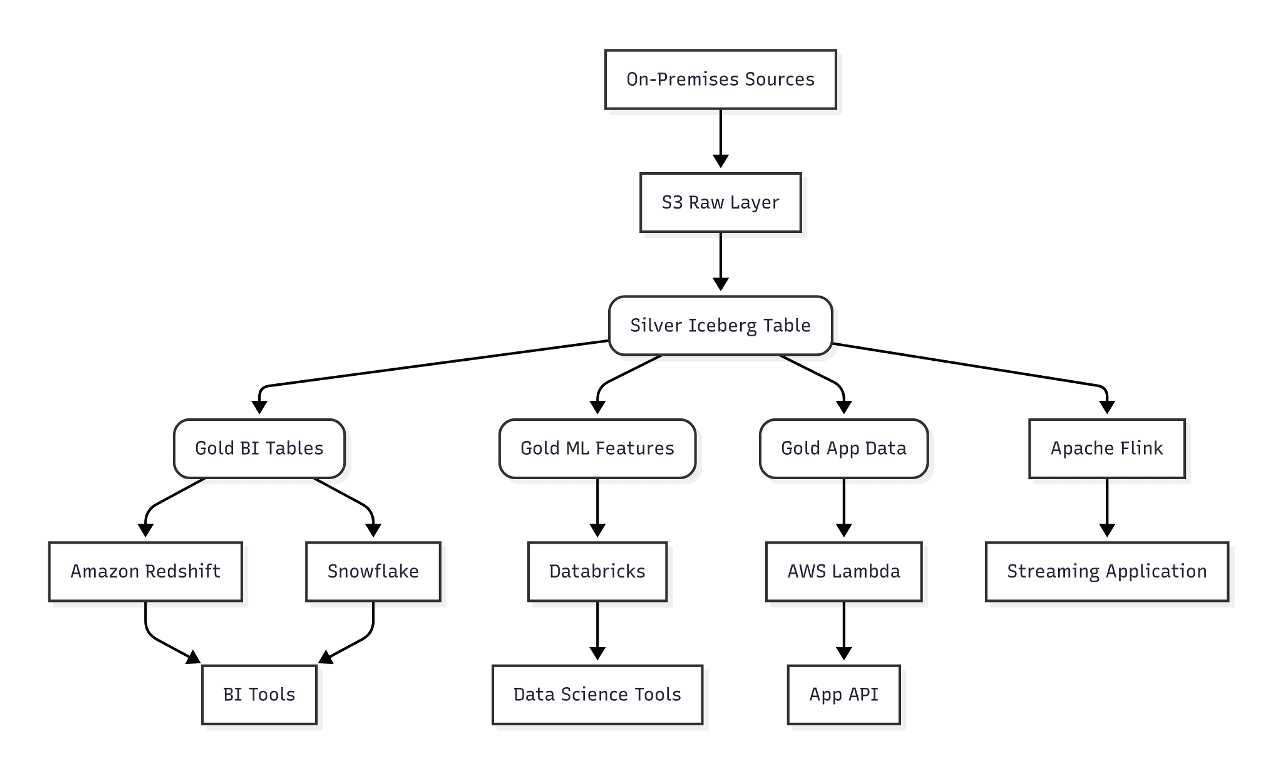

| Feature | Delta Lake | Apache Iceberg | Implications for Strategy |
| Core Technology | Open-Source project managed by the Delta Lake Project (Linux Foundation). | Open-Source project managed under the Apache Software Foundation (ASF). | Iceberg’s ASF governance typically guarantees a more neutral, community-driven standard, reducing vendor risk. |
| Primary Developer/Maintainer | Databricks (Primary contributor, invented the format). | Netflix, Apple, Stripe (Strong multi-cloud enterprise backing). | Vendor Lock-in: Delta is perceived as Databricks-centric; Iceberg is truly cloud- and engine-neutral. |
| Key Interoperability | Limited: Optimized for Spark/Databricks. Requires translation layers for optimal performance on Snowflake/Synapse. | Excellent: Natively supported by Snowflake, Starburst/Trino, Spark, Flink, and AWS Athena/EMR. | Futureproofing: Iceberg is better suited if Snowflake or moving compute platforms is a serious future consideration. |
| Catalog Integration | Relies heavily on Databricks Unity Catalog (when using Databricks) or Hive Metastore. | Pluggable Catalog (Hive, AWS Glue, Nessie, Snowflake, etc.). | Interoperability: Iceberg is designed to easily plug into diverse catalogues, making multi-cloud/multi-engine easier. |
| ACID Guarantees | Yes (Via the Transaction Log) | Yes (Via the Metadata/Manifests) | Both offer strong transactional integrity. |
| Schema Evolution | Yes (Handles changes like adding columns, etc.) | Yes (Advanced, supporting safe structural changes). | Both handle schema management well. |
| Time Travel (Rollback/BUR) | Yes (Query by version or timestamp) | Yes (Query by version or timestamp) | Resilience: Both formats solve the logical corruption/rollback BUR requirement effectively. |
| File Rewrites (VACUUM/Compaction) | Manual: Requires commands like VACUUM and OPTIMIZE. | Flexible: Offers cleaner solutions for data expiry and compaction managed via metadata files. | Management complexity is comparable, but Iceberg often provides more control. |